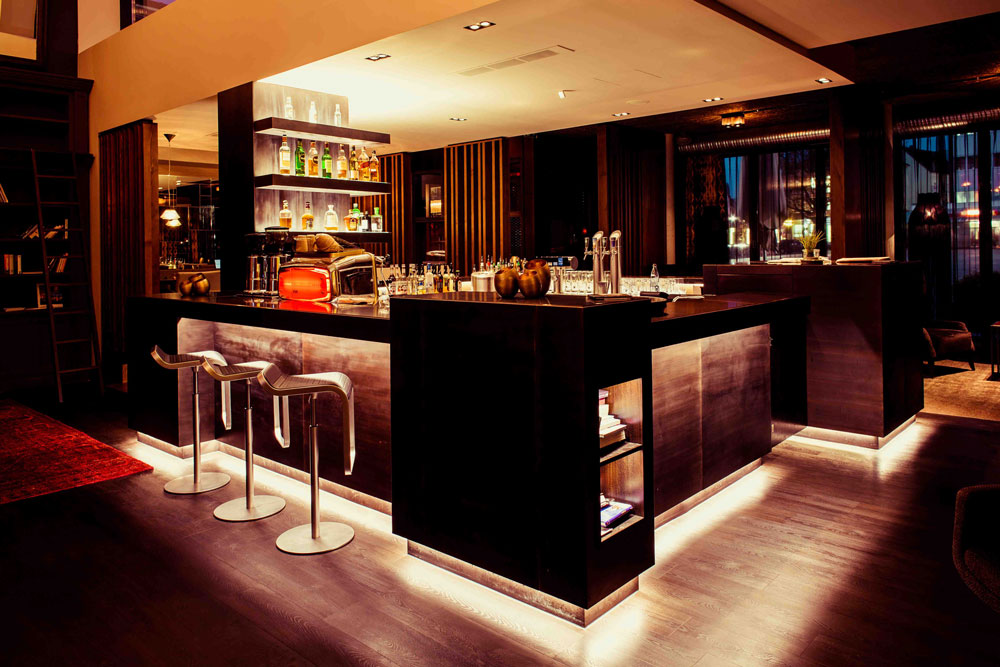Hans Sachs, founder and Managing Director of SAKS Urban Projects lives in Kaiserslautern and Zurich with his wife, the paediatrician Dr. Ute Sachs-Baque, and his two daughters.
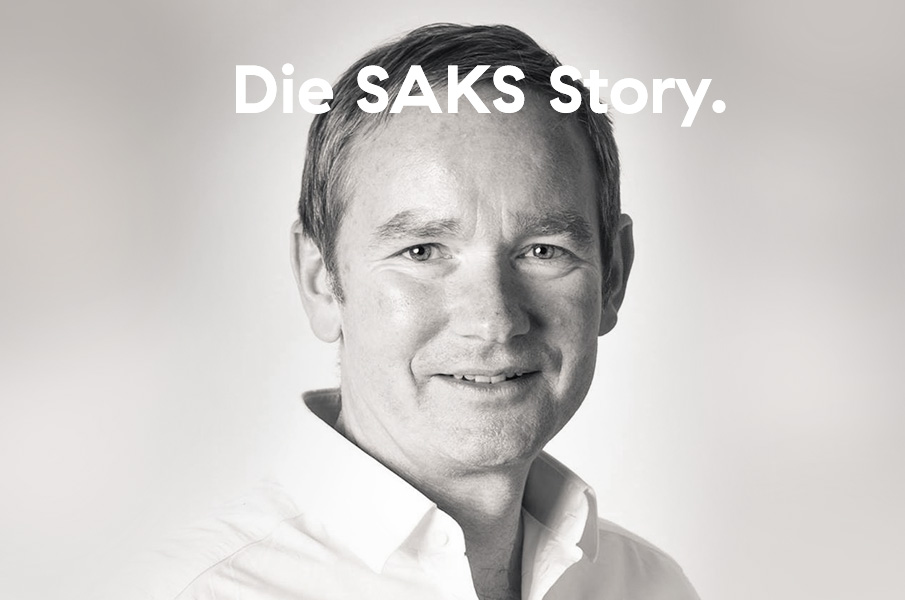
»
How can you make exciting urban spaces accessible to as many people as possible? «

Life at the pulse of time.
In 1988, Hans Sachs wanted to try something new and was offered an unusual opportunity …
After having completed his master craftsman’s certificate in electrical trade, he was at this point managing the family business that his father had founded in 1957, in which he also saw his professional future after the early death of his parents.
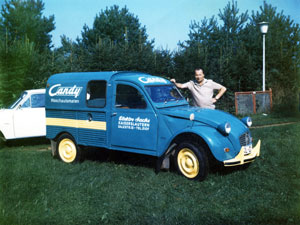
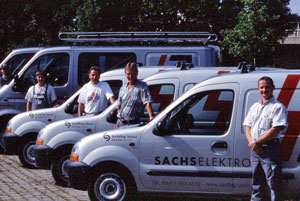

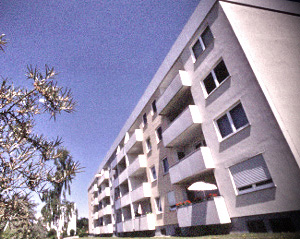
But the conventions of his industry and the location stood in the way of a healthy growth of this medium-sized company: An extreme shortage of skilled labour, the location in Kaiserslautern which had but few second sector companies in its proximity, and the lack of mobility of the workforce were just some of the challenges which the company was facing at the time.
Then an unusual opportunity opened up: A small plot of land was put up for sale in Salzstrasse in the popular old town of Kaiserslautern, in which Hans Sachs saw a lot of potential. Because on the one hand many contemporaries were interested in this exciting inner-city area, and on the other hand major construction companies were not interested in small construction projects.
Hans Sachs seized the opportunity, bought the land and created a building with an attractive floor plan and extraordinary architecture that was way ahead of its time and very much a novelty in its day: The design, the utilisation concept, the mix of commercial and residential space in compliance with the district’s architectural standards, as well as the unique inner-city location made for attractive living at the pulse of time and convinced surprisingly many potential buyers.
The success of this small project made Hans Sachs ponder. Obviously he had a good sense and a flair for special places and the design of spaces.
After developing a wide variety of residential real estate in the following years, he asked himself what the best way would be to make exciting urban spaces accessible to as many people as possible.
weiterlesen
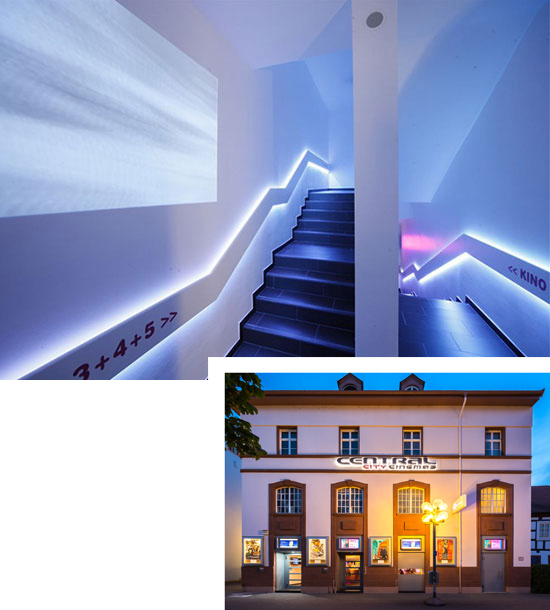
At the right time
against the trend
against the trend
Daring
more urbanity
more urbanity
In the 1990s, the cinema industry was in upheaval. Visitor numbers had declined steadily since the 1970s. Traditional inner city cinema palaces were under pressure due to the technological advancements in the area of TV and video, and were forced to either close down or be used for other purposes and lucratively rented out to retail businesses.
The »Central-Filmpalast« in Kaiserslautern was also facing closure. Like so many other beautiful premier cinemas, it too was situated in a prime inner city location. For Hans Sachs, this was a challenge:
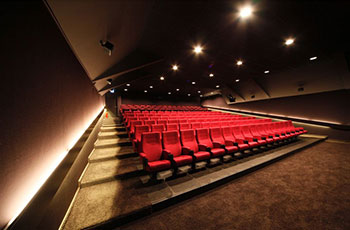
In his opinion, cinema belongs in the inner city because it contributes significantly to urbanity due to its heterogeneous clientèle.
He made it his goal to revive the protected building and convert it into a small multiplex cinema with 5 rooms and 800 seats – as was commonly done in the early 1990s. And he was successful: To this day, the cinema is part of SAKS Urban Projects and a popular meeting place for film lovers from all over the region.
weiterlesen
Do the one,
without
leaving the other
without
leaving the other
How suburbs can cooperate successfully with inner cities
After his experiences with project development, the area of business was expanded from “residential” to “commercial”. In the following period, Hans Sachs’ companies built numerous retail properties and acquired housing stock from institutional investors.
Apart from being the managing director of the project development companies, Hans Sachs also served as a go-between for cinema operators and investment companies in the area of multiplex cinema development.
In 1997, following pressure from several international cinema operators, a multiplex cinema was to be built in Kaiserslautern.
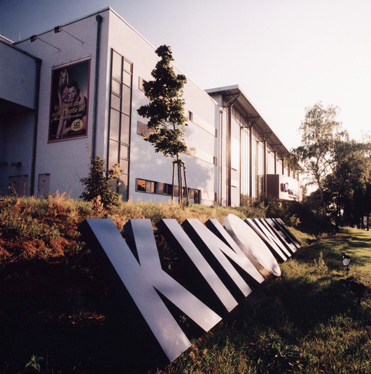
In order to not endanger the existence of the inner city cinema, he used some of the land from the converted “PRE-Park” grounds, which he had purchased together with six other shareholders shortly before, and built a multiplex cinema here for an investment volume of around EUR 18 million.
The cinema was first leased to United Cinema International (UCI) and subsequently sold to a real estate fund. He was assured that the inner city cinema would be supported as a premier cinema to secure its continued existence. In 1998, the “UCI Cinema” was also the “starter project” for the development of the PRE-Park.
weiterlesen
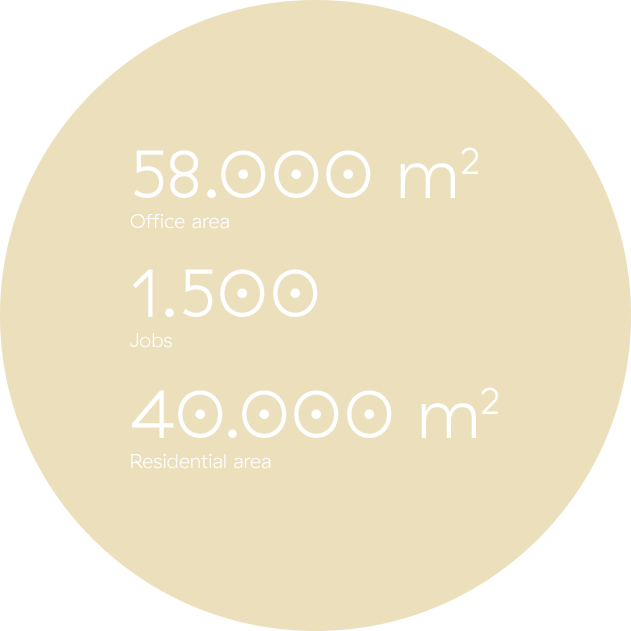
From old
to new
to new
Creating urban spaces
with mixed-use developments
with mixed-use developments
In 1997, Hans Sachs and six other shareholders acquired the Holtzendorff barracks in Kaiserslautern. Up to his retirement in 2010, his role as shareholder and managing director was the target-oriented project development of the “PRE-Park” site.
The foundation of the urban development contract was the obligation to invest EUR 50 million within the next seven years and EUR 200 million within the next 15 years.
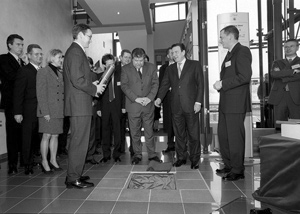
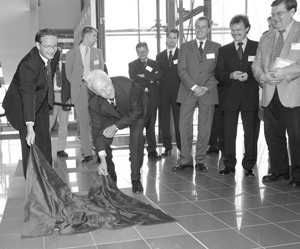
The project progressed so well that, within in a relatively short time, it was considered to be one of the most successful conversion projects in all of Germany. National policy makers came to visit, acknowledging the services rendered.
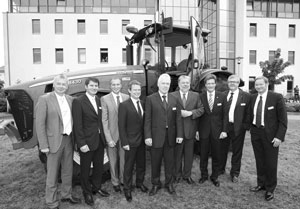
The PRE Park project was so successful that investments worth EUR 180 million were triggered after only seven years. The strategy of the PRE was in line with the positioning of the city of Kaiserslautern to turn the park into a hub for companies in the information and communication technology and related services sector. For this purpose, spin-offs of the Technical University and its affiliated institutions (such as the Fraunhofer IESE and ITWM, DFKI and the Max Planck Institute) were to establish a presence in the PRE in the form of a campus project with office space and facilities.
In this way, around 28,000 sqm of office space was created and rented out by 2005 in the renovated former barracks and around 30,000 sqm in new buildings, which led to the creation of approximately 1,500 new jobs. Further PRE Park projects were developed, such as for example the UCI cinema, the Monte Mare Waterpark, a Burger King restaurant, a large fitness studio, a furniture market and a residential area of 40,000 sqm.
weiterlesen
Science meets
entrepreneurial
thinking
entrepreneurial
thinking
Development of successful hotel projects
The year 2000 was not only the turn of the century, but also the turning point at which the vision of Hans Sachs would reach its final fulfilment…

The objective: Bringing together investors and users looking for an urban and at the same time profitable real estate solution.
Driven for decades by the idea of “making exciting urban spaces accessible to as many people as possible”, he studied economics at the University of Leipzig, specialising in marketing, real estate management and tax.
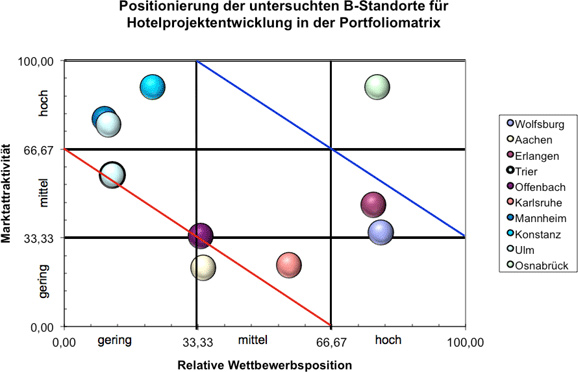
As part of his diploma thesis, he had the opportunity to scientifically assimilate the topic of “hotel project development” and combine his many years of practical experience in the field of project development with the academic knowledge acquired at the university.
This gave rise to the idea of SAKS Urban Design Hotels and the vision to upgrade selected urban districts with unusually high-quality boutique hotels.
This was followed in subsequent years by extensive analyses of dozens of European locations, such as Zurich, Munich and Paris, as well as the development of an expansion scenario, thereby laying the foundation stone for future success.
weiterlesen
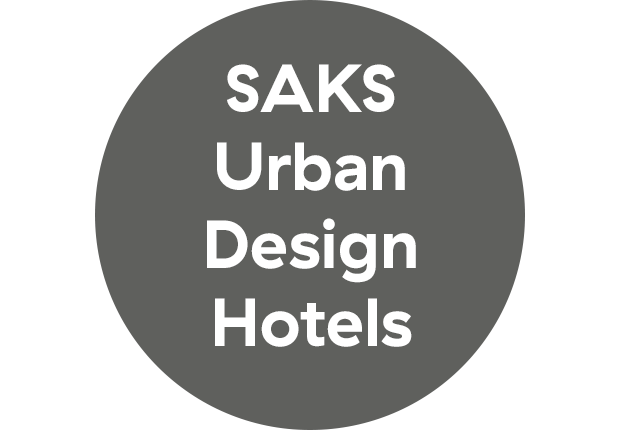
Unique solutions for exciting urban locations
After the foundation of the company in Zurich in mid 2009 and the development of the first SAKS Urban Design Hotel projects, the opportunity arose at the end of 2009 to take over a former hotel project at Stiftplatz, Kaiserslautern, and build the first SAKS Urban Design Hotel there.
For us, an
»Urban Design Hotel« means an interdisciplinary understanding of “hotel” in the urban space “city” from a point of view of “design”. We want to create spaces in the inner city that are also accessible to the urban society.
»Urban Design Hotel« means an interdisciplinary understanding of “hotel” in the urban space “city” from a point of view of “design”. We want to create spaces in the inner city that are also accessible to the urban society.
The shell structure had been built about 10 years prior, but further development was not seen as viable by the project developers, the city’s policy makers and the citizens.
Within only 13 months, Hans Sachs turned the “ruin at Stiftplatz” into a chic, urban design hotel with 92 rooms. It opened in May 2011.
Highly motivated by the SAKS pioneer project in Kaiserslautern, SAKS Urban Projects has, since the beginning of 2015, been focusing on finding suitable buildings that can be converted into SAKS Urban Design Hotels.
The SAKS Urban Design Hotel concept soon became well known throughout the industry. On the occasion of the Expo Real in Munich in 2013, the hotel in Kaiserslautern was nominated as »Hotel Property of the Year« by the Hotelforum and was ranked among the top three.
weiterlesen
All hotels are characterised by two major principles:
To the outside the hotels are designed individually for a specific location and tailored towards the expectations of the guests, without appearing artificial.
To the inside they are standardised, which allows the concept to also be used in many other urban locations in Europe.

Zurich
Munic
Paris
Vienna…
Munic
Paris
Vienna…
Are you an investor, lessor or vendor seeking a unique solution for your unusual urban location that is sustainable and economical? Then we look forward to your contacting us



